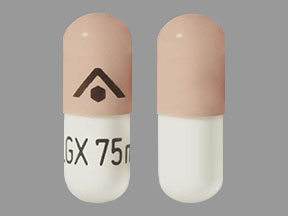Encorafenib Interactions
There are 630 drugs known to interact with encorafenib, along with 5 disease interactions, and 1 alcohol/food interaction. Of the total drug interactions, 279 are major, 339 are moderate, and 12 are minor.
- View all 630 medications that may interact with encorafenib
- View encorafenib alcohol/food interactions (1)
- View encorafenib disease interactions (5)
Most frequently checked interactions
View interaction reports for encorafenib and the medicines listed below.
- Ambien (zolpidem)
- Ativan (lorazepam)
- Avastin (bevacizumab)
- Benadryl (diphenhydramine)
- Co-trimoxazole (sulfamethoxazole / trimethoprim)
- Coenzyme Q10 (ubiquinone)
- Compazine (prochlorperazine)
- Copper (copper gluconate)
- Coricidin HBP Cough & Cold (chlorpheniramine / dextromethorphan)
- Dexilant (dexlansoprazole)
- Dulcolax Stool Softener (docusate)
- Ecotrin Adult Low Strength (aspirin)
- Emla (lidocaine / prilocaine topical)
- Ethyl Alcohol (ethanol)
- Fentanyl Transdermal System (fentanyl)
- Glycerol (glycerin)
- Heparin Sodium (heparin)
- Imodium (loperamide)
- L-Arginine (arginine)
- L-Carnitine (levocarnitine)
- L-Cysteine (cysteine)
- Lipitor (atorvastatin)
- Lithium Carbonate ER (lithium)
- Lomotil (atropine / diphenoxylate)
- Minocin (minocycline)
- Neuriva Brain performance Plus (multivitamin)
- Opium Tincture, Deodorized (opium)
- Tramadol Hydrochloride ER (tramadol)
- Valproate Sodium (valproic acid)
- Vitamin D3 (cholecalciferol)
Encorafenib alcohol/food interactions
There is 1 alcohol/food interaction with encorafenib.
Encorafenib disease interactions
There are 5 disease interactions with encorafenib which include:
More about encorafenib
- encorafenib consumer information
- Compare alternatives
- Reviews (1)
- Side effects
- Dosage information
- During pregnancy
- Drug class: multikinase inhibitors
- Breastfeeding
- En español
Related treatment guides
Drug Interaction Classification
| Highly clinically significant. Avoid combinations; the risk of the interaction outweighs the benefit. | |
| Moderately clinically significant. Usually avoid combinations; use it only under special circumstances. | |
| Minimally clinically significant. Minimize risk; assess risk and consider an alternative drug, take steps to circumvent the interaction risk and/or institute a monitoring plan. | |
| No interaction information available. |
See also:
Further information
Always consult your healthcare provider to ensure the information displayed on this page applies to your personal circumstances.


